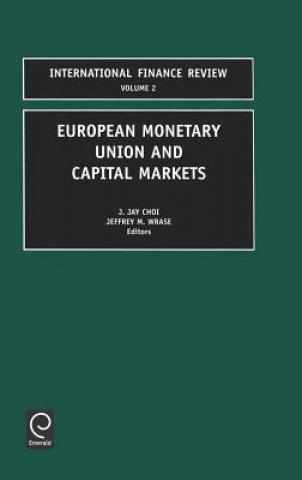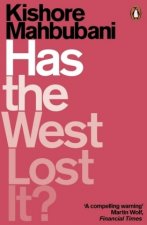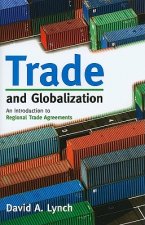
Kód: 04687598
European Monetary Union and Capital Markets
Autor Paul M. Kirk, Merrill Choi, Choi
To form a more perfect economic union and to establish a single market financially, economically and politically, 11 European countries founded a common currency and a European Central Bank, and created a new monetary unit, the eu ... celý popis
- Jazyk:
 Angličtina
Angličtina - Vazba: Pevná
- Počet stran: 288
Nakladatelství: Emerald Publishing Limited, 2001
- Více informací o knize

5569 Kč

Skladem u dodavatele v malém množství
Odesíláme za 10-14 dnů
Potřebujete více kusů?Máte-li zájem o více kusů, prověřte, prosím, nejprve dostupnost titulu na naši zákaznické podpoře.
Přidat mezi přání
Mohlo by se vám také líbit
-

Irvine Welsh's Trainspotting
842 Kč -

Mindful Way through Depression
576 Kč -

Roman Mysteries: The Legionary from Londinium and other Mini Mysteries
221 Kč -

Training Amy
473 Kč -

Literature and Film in Cold War South Korea
957 Kč -

Art, Performance, Media
2570 Kč -

Liberty
450 Kč
Darujte tuto knihu ještě dnes
- Objednejte knihu a zvolte Zaslat jako dárek.
- Obratem obdržíte darovací poukaz na knihu, který můžete ihned předat obdarovanému.
- Knihu zašleme na adresu obdarovaného, o nic se nestaráte.
Více informací o knize European Monetary Union and Capital Markets
Nákupem získáte 557 bodů
 Anotace knihy
Anotace knihy
To form a more perfect economic union and to establish a single market financially, economically and politically, 11 European countries founded a common currency and a European Central Bank, and created a new monetary unit, the euro, on 1st January, 1999. On that date, the old national currencies officially became subunits of the euro, much as the nickel and quarter are subunits of the dollar. Fifteen countries started down the road to monetary union in 1992, when they signed the Treaty on European Union, commonly known as the Maastricht Treaty, which outlined a basic structure for the alliance. However, of those 15 countries, only 11 initially joined the European Monetary Union (EMU): three countries opted out, and another did not meet the economic criteria established for membership in the union. The EMU countries decided that the benefits of having one common currency instead of 11 different ones would outweigh the costs, especially given the amount of travel, trade and financial flow that takes place between these countries. This volume considers effects on capital and goods markets of monetary union in general and European Monetary Union (EMU) in particular. The effects of monetary union addressed here broadly fall into three categories - adjustments in goods and labor markets, adjustments in money and capital markets, and institutional adjustments when a group of countries adopt a common currency (and a common monetary policy), but retain quasi-independent fiscal (and other economic) policies. The relation between monetary union and capital market integration is also highlighted.
 Parametry knihy
Parametry knihy
Zařazení knihy Knihy v angličtině Economics, finance, business & management Economics International economics
5569 Kč
- Plný název: European Monetary Union and Capital Markets
- Autor: Paul M. Kirk, Merrill Choi, Choi
- Jazyk:
 Angličtina
Angličtina - Vazba: Pevná
- Počet stran: 288
- EAN: 9780762308309
- ISBN: 0762308303
- ID: 04687598
- Nakladatelství: Emerald Publishing Limited
- Hmotnost: 581 g
- Rozměry: 234 × 156 × 17 mm
- Datum vydání: 13. December 2001
Oblíbené z jiného soudku
-

New Confessions of an Economic Hit Man
433 Kč -

Treasure Islands
323 Kč -

Merchants of Grain
529 Kč -

Great Rebalancing
413 Kč -

Natural Capitalism
459 Kč -

Turbulent and Mighty Continent - What Future for Europe?
736 Kč -

International Economics: Theory and Policy, Global Edition
2260 Kč -

Has the West Lost It?
276 Kč -

Principles for Dealing with the Changing World Order
1093 Kč -

Soros on Soros - Staying Ahead of the Curve
915 Kč -

The Competitive Advantage of Nations
1041 Kč -

Expert Advisor Programming for Metatrader 4
847 Kč -

Concise History of International Finance
828 Kč -

Handbook of International Trade and Finance
1346 Kč -

Japanese Business Culture and Practices
359 Kč -

Understanding Ludwig Lachmann's Economics
603 Kč -

Coercing, Constraining and Signalling
1505 Kč -

Secrets of Temple
626 Kč -

Trade and Globalization
2564 Kč -

Bad Samaritans
330 Kč -

The Road to Ruin
410 Kč -

SuperHubs
323 Kč -

China Shakes The World
276 Kč -

International Economics with MyEconLab
1692 Kč -

Cracking the China Conundrum
1254 Kč -

Import/Export: How to Take Your Business Across Borders
757 Kč -

EuroTragedy
1143 Kč -

Forex for Ambitious Beginners
557 Kč -

Age of Turbulence
463 Kč -

Is the American Century Over?
441 Kč -

Managerial Economics in a Global Economy
6562 Kč -

International Trade
2916 Kč -

Red Flags
757 Kč -

Fair Trade
312 Kč -

Splendid Exchange
543 Kč -

Fault Lines
380 Kč -

Transatlantic Defence Procurement
4093 Kč -

International Economic Institutions
1681 Kč -

Oxford Handbook on The World Trade Organization
1736 Kč -

International Trade Finance
1931 Kč -

No Ordinary Disruption
372 Kč -

Informal Post-Socialist Economy
1659 Kč -

Economics of the European Union
2807 Kč -

Import/Export Kit For Dummies 3e
545 Kč -

Signals
276 Kč -

Doing Business in Europe
2335 Kč -

ReORIENT
1003 Kč -

Making Globalization Work
302 Kč -

Medieval Trade in the Mediterranean World
1232 Kč
Osobní odběr Praha, Brno a 12903 dalších
Copyright ©2008-24 nejlevnejsi-knihy.cz Všechna práva vyhrazenaSoukromíCookies


 Vrácení do měsíce
Vrácení do měsíce 571 999 099 (8-15.30h)
571 999 099 (8-15.30h)